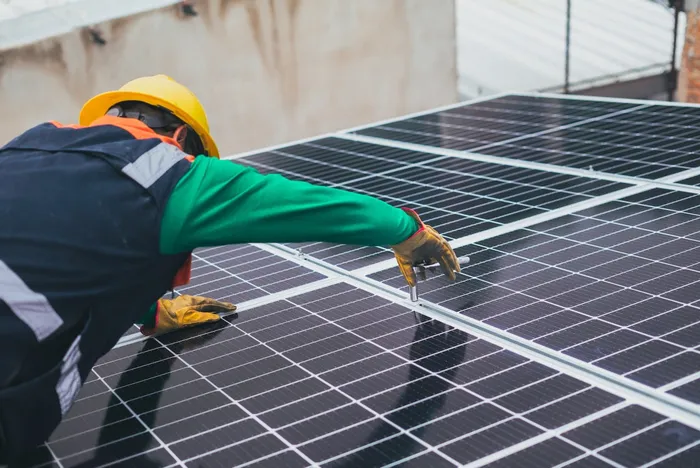South African households benefit as Eskom extends zero solar registration fees until 2026

Solar registration fees continue to remain zero for the majority of Eskom’s residential customers and include a free smart meter until March 2026
Image: Pexels
Eskom has extended its zero registration fee for residential Small-Scale Embedded Generation (SSEG) systems until March 2026.
Launched on April 1, 2025, this initiative helps homeowners adopt solar power by reducing costs and supporting cleaner energy in South Africa.
Brought into effect in March 2023, Eskom’s policy exempts homeowners from registration fees and the costs associated with installing a smart meter for systems rated up to 50kVA— with larger installations attracting different fee structures.
This means that residential customers not only avoid upfront costs, but can also capitalise on savings of approximately R9,132 due to the ongoing exemption from connection and tariff conversion fees.
“Our objective is to help residential owners comply with the National Energy Regulator of South Africa (NERSA) regulations while simultaneously supporting green energy initiatives,” said an Eskom spokesperson.
“This campaign illustrates our commitment to promoting renewable energy and the necessary safety measures within the network.”
The push towards solar energy is underscored by NERSA’s regulations that mandate all properties with embedded generation systems, regardless of their size, to register with Eskom or their local municipality.
This measure aims to bolster grid safety amidst the growing prevalence of renewable energy sources. Customers who opt for a fully off-grid solution are exempt from registration, provided they can prove their systems operate independently.
Benefits of Eskom's Homeflex tariff
Once registered, residential customers enter Eskom's Homeflex tariff, which allows them to enjoy lower fixed charges—R368 per month—compared to traditional rates. This structure not only covers backup services but also enables households to earn credits for exporting excess energy back to the grid, creating a mutually beneficial relationship between energy suppliers and consumers.
To enhance the efficiency of the registration process, Eskom has introduced a simplified three-step method:
- Apply for SSEG Registration: Interested customers can email the respective provincial Eskom address to initiate their registration.
- Make Payment and Schedule Installation: Post registration, any necessary payments are made (with residential users exempt until 31 March 2026) before smart meter installation.
- Receive Payment Details: Customers will be directed regarding estimated monthly bills and deposit options, ensuring they are fully informed.
Safety Measures and Compliance
As the demand for solar installations escalates, Eskom emphasizes the importance of adhering to safety standards, including compliance with South African regulations and obtaining the necessary certificates for installation. Registered engineers must validate installations, ensuring safety for both users and Eskom personnel as they manage a more complex energy landscape.
Eskom has also unveiled a new online Small Power User (SPU) tool, enabling customers to explore potential savings through the Homeflex tariff, reinforcing the benefits of transitioning to renewable energy and maintaining compliance with national regulations.
With these initiatives, Eskom aims not only to support households in embracing sustainable energy practices but also to enhance the safety and reliability of the electricity distribution network in South Africa.
IOL
Related Topics: